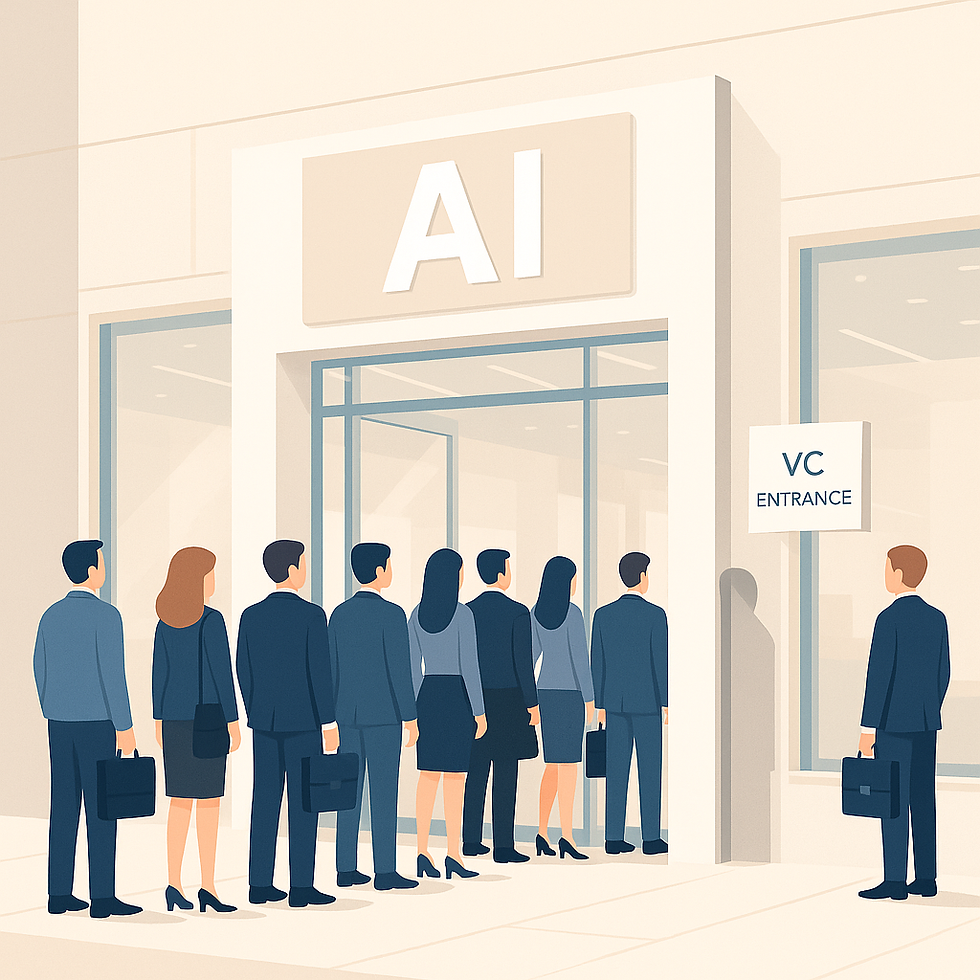Nano Banana: Image generation game changer or just a selfie heaven
- Sep 4, 2025
- 2 min read

It began almost playfully. Over just a few days, social feeds were overrun with bananas, doctored celebrity selfies, and cartoon characters reimagined as figurines. The hashtag #NanoBanana quickly climbed into trending lists.
The twist: none of it was real. Every image was AI-generated and it's now standard in Google Gemini.
We’ve seen viral AI content before, but what set Nano Banana apart was the ease. For the first time, millions of people could tell an image generator exactly what they wanted — and get a photorealistic result in seconds.
What looked like a viral prank was actually a showcase of something much bigger: a leap forward in AI image generation.
From Meme to Milestone
The Nano Banana craze highlights just how far generative AI has come in 2025. Where creating photorealistic edits once required hours in Photoshop, now anyone can generate them instantly with a few words.
This isn’t just filters or face-swaps. It’s Photoshop-level power in the hands of billions. A teenager in Lagos, a marketer in São Paulo, or a gamer in Manila can all create images convincing enough to fool friends, family — or the internet at large.
As one observer joked:
“What Photoshop did for design in the 2000s, Nano Banana is doing for memes in 2025.”“What Photoshop did for design in the 2000s, Nano Banana is doing for memes in 2025.”
The Market Response: Google Surges on Polymarket
Behind the meme, there’s serious money. The tech powering Nano Banana is linked to Google’s generative AI stack — and the markets noticed.
On Polymarket’s “Best AI Model of 2025” prediction market, Google’s odds spiked dramatically after OpenAI's launch of ChatGPT 5 with Google surging to 55% from 43% a day before the launch (OpenAI dropped from 36% to 17%). Since August 8 Google has continued to climb thanks a multitude of factors and is now dominating the prediction with 76% compared to 10% for xAI (Grok) and 9% for OpenAI.
Risks Beneath the Peel
But the Nano Banana phenomenon also exposes major risks:
Fraud & Scams – Hyper-real fake selfies could fuel romance scams, fake IDs, or even new forms of phishing.
Security Threats – If AI can mimic a person’s face this convincingly, biometric logins (face scans, ID checks) could be at risk.
Copyright Confusion – Who owns a Nano Banana selfie? The meme-maker? The AI model? Or the platform?
Trust Erosion – If everyone can fake everything, the internet faces a new wave of skepticism. Proof becomes harder to establish.
These aren’t just hypothetical concerns. Already, platforms are scrambling to watermark AI images or roll out detection tools — but as the meme shows, adoption always moves faster than regulation.





